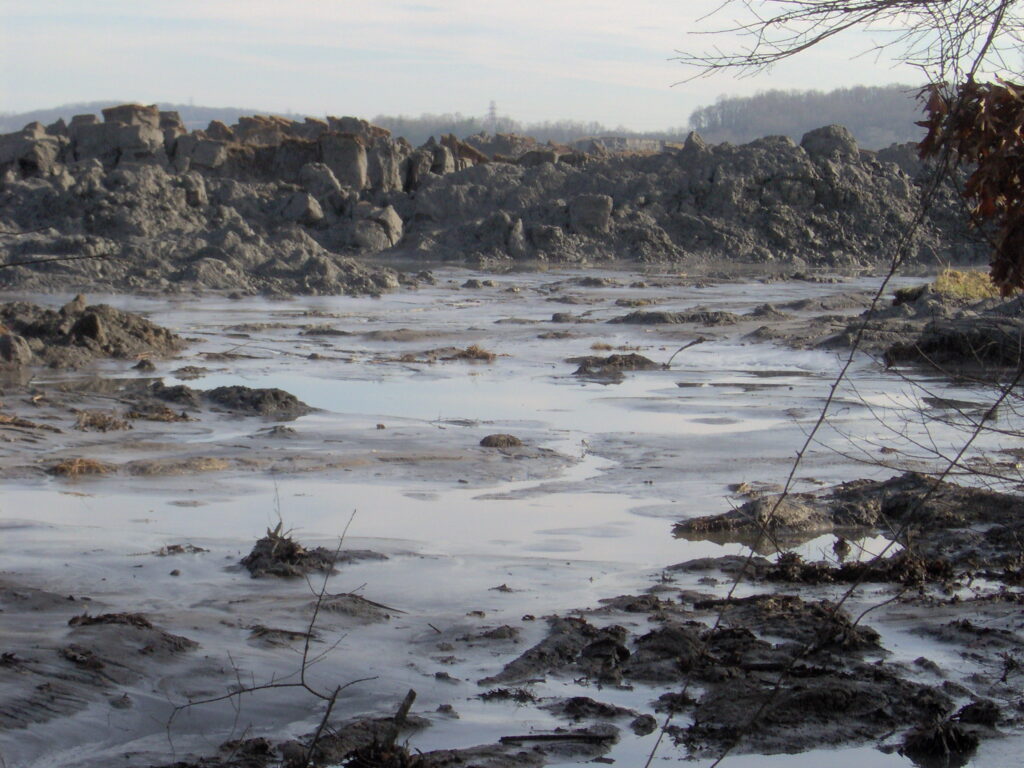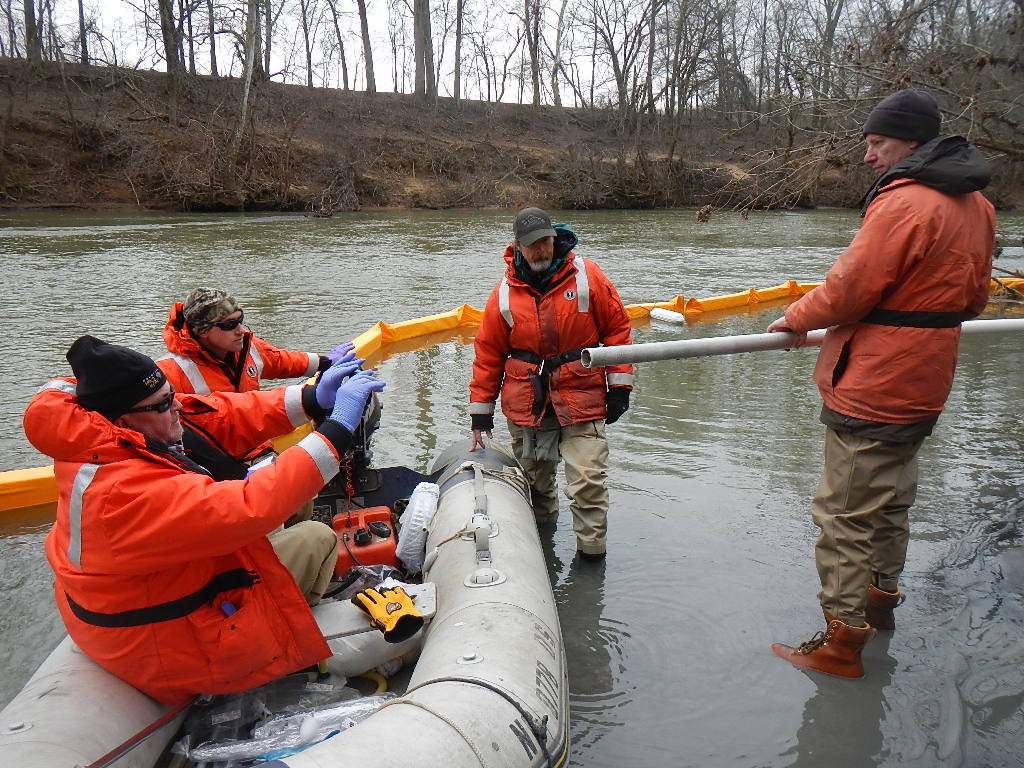Power outages and water main breakages propelled America’s infrastructure breakdown to the national news this February 2021, leaving millions of Texans without access to basic utilities. These catastrophic equipment failures resulted in electrical companies price gouging their customers and Texas municipalities issuing water boiling advisories. Given the massive scale of this crisis, reporters have held the uniquely deregulated energy sector in Texas partially responsible for these particular utility failures. Both natural gas and coal companies have a strong presence in Texas, yet consistent power supply from these energy sources is vulnerable to severe weather. As climate change leads to more frequent and extreme weather events such as fires, flooding, and freezing temperatures, energy disruptions are more likely to occur. Importantly, the management of coal byproducts such as coal ash may also be impacted by climate breakdown.
One of the waste byproducts of coal burning, coal ash, contains trace elements including lead, arsenic, chromium, mercury, and cadmium. To store the coal ash, it is typically mixed with water to create ponds on the Earth’s surface. If the walls of the pond or any underground pipes fail, the contents can pollute waterways, groundwater, and well water with toxic heavy metals and numerous other chemicals. The dangers to people residing near such ponds include up to a 1 in 50 chance of developing cancer from arsenic exposure in drinking water, as well as damage to the liver, kidneys, and lungs. The long-term feasibility of maintaining, let alone containing, ponds of coal ash is threatened by climate change, as equipment failure can release millions or even billions of gallons of pollution into waterways. In a less extreme but more recent example closer to home, Hurricane Florence contributed to coal ash pond erosion and minor spills in North Carolina in 2018.

Sometimes, federal regulation of energy generation byproducts is initiated as a response to major environmental disasters, such as the 2008 coal ash spill in Kingston, TN, or the 2014 spill in Eden, NC. Last month, it was reported that Duke Energy had settled with the North Carolina Utilities Commission to reduce customer bills by $1.1 billion between 2015 and 2030 and to close its remaining coal ash basins, projected to be completed by about 2035. Additionally, Duke Energy settled with the NC Department of Environmental Quality (DEQ) to excavate 80 million tons of coal ash as part of the largest coal ash cleanup in U.S. history. At the time, Michael S. Regan led the charge to hold Duke Energy accountable for coal ash generation and pollution, and is currently Biden’s nominee to be Administrator of the Environmental Protection Agency (EPA).

In contrast, not all states have such impactful oversight. As recently as December 2020, Texas demonstrated its allegiance to industry over individuals by beginning to wrest control of coal ash regulation from the EPA. This action is unlikely to improve living conditions for Texas’ 29 million citizens, as pollution was found to be leaking from 100% of the coal ash dumps in Texas by the nonprofit group Environmental Integrity Project. Even in states where coal ash settlements have ostensibly favored the health of their citizens, the Allen Steam Station operated by Duke Energy in NC ranked 2nd in the nation for toxic pollution of groundwater. If environmental policy tilts toward tighter regulation over the next couple of decades and waste remediation projects pick up speed, we may trade our polluted reality for a greener future.
Peer edited by Elise Hickman